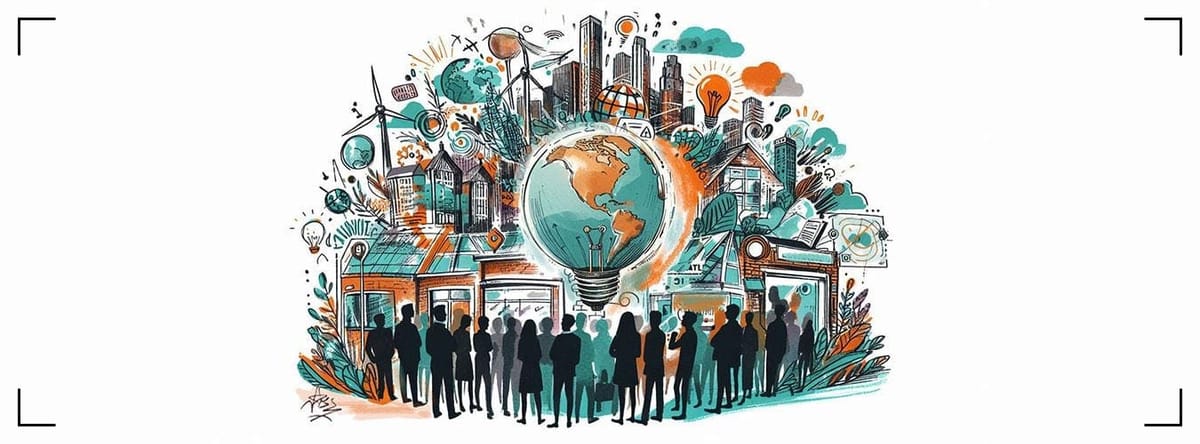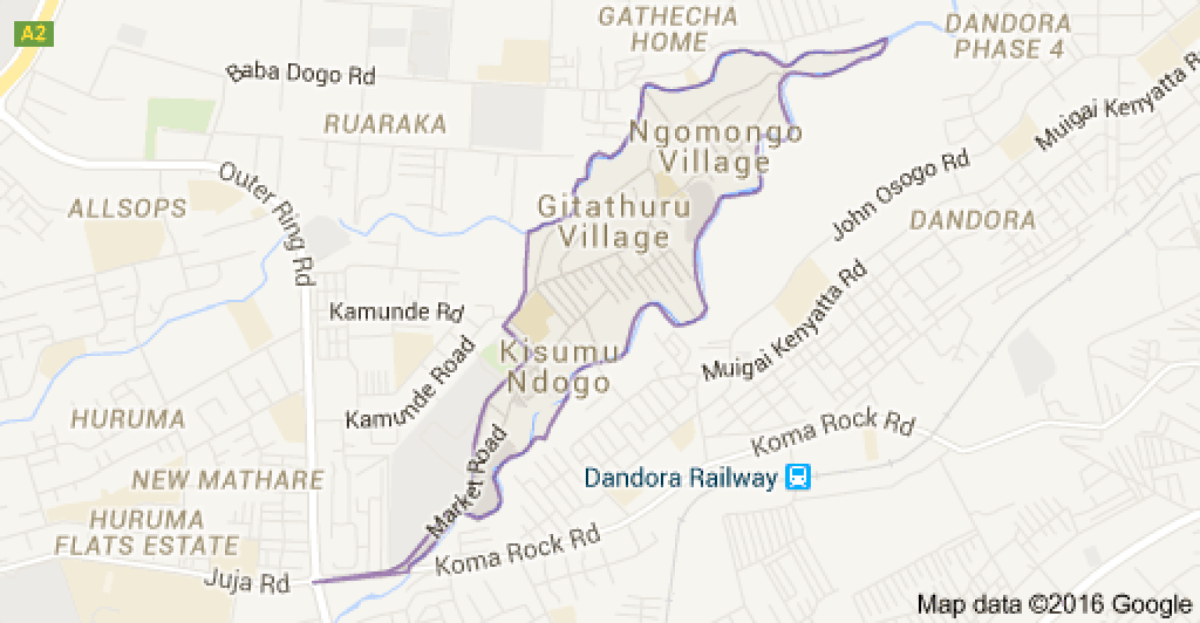World Cities Day 2025: What it means in Korogocho
World Cities Day 2025 is not a promise of salvation. But it does provide a clear order of priorities.

A global slogan, a specific location
On 31 October 2025, the world will celebrate World Cities Day, which was proclaimed by the UN General Assembly in Resolution 68/239. This year, Bogotá is hosting the main global event. The motto is ‘People-centred Smart Cities’ – in other words, smart cities that focus on people's needs rather than technology.
‘People-centred’ – what does that actually mean?
UN-Habitat clearly defines the approach: first comes the problem, then the solution. Data and digital tools are a means to an end – for example, to involve citizens, make decisions transparent and organise services such as water, waste and transport reliably. Technology must not exclude anyone and must focus on rights, inclusion and benefits. (If you come across unfamiliar terms: ‘tenure’ means security of use/ownership, ‘morbidity’ means the frequency of disease. )
Korogocho: 150,000–200,000 people in 1.5 km²
Korogocho is located in eastern Nairobi next to Dandora and, with around 150,000 to 200,000 inhabitants in an area of approximately 1.5 km², is one of the most densely populated settlements in the city. Many households live without safe water and sewage connections; the landfill site affects the air, the soil and people's incomes. The local platform korogocho.com provides a sober summary of everyday life here – including insights into grassroots initiatives ranging from football clubs to recycling groups.

What a World Day can actually achieve
A day of action does not lay pipes, but it does bring together attention, commitment and budgets. In Nairobi, a concrete example has emerged in 2025: the city and its partners have begun construction of a material recovery facility (MRF) in Korogocho – a facility that sorts recyclable materials and reduces waste. UN-Habitat is supporting this with a call for tenders for collection and recycling systems in Korogocho. Such projects do not come about ‘because of a single day’, but a day like today accelerates coordination and financing.
‘Smart’ here means water, roads, light – and transparency.
The contributions from the Korogocho Knowledge Hub show how quickly water in Korogocho can turn from a factor of life to a factor of disease: overflowing latrines, open ditches, contaminated springs – perfect conditions for cholera, typhoid and diarrhoeal diseases. ‘Smart’ therefore begins with the WASH package (water, sanitation, hygiene): cleaning drains, safe water points, chlorination/filters, soap and a clear reporting system (e.g. via text message). Transparent progress indicators – simple public dashboards – create trust.
Street scenes – widening and modernising roads with drainage and lighting – are just as effective. This has proven itself in Korogocho for years and has been shown to increase safety, mobility and the number of small businesses. Smart cities start with the street on your doorstep.

People instead of apps: what the sources from Korogocho teach us
The website korogocho.com documents everyday life and local actors: the WAKULIMA YOUTH GROUP cleans alleys and plants green spaces; the AYIERA INITIATIVE, the MASHINANI LEAGUE or TEDS COMMUNITY HUB use football to create safe places for boys and girls; new small hubs offer homework help and meals. This is ‘smart’ in the truest sense of the word: solving specific problems with local energy – and only then amplifying them digitally.
At the same time, the Korogocho Knowledge Hub collects reliable facts and background information in one place – from health risks and access to water to the cost of 90-day WASH packages. The advantage: authorities, NGOs and residents are talking about the same data, which speeds up decision-making.
Any upgrading can lead to an increase in rents. Protective measures are necessary: securing housing rights (registrations, usage agreements), limiting rents during the construction phase, staggered development block by block, provision of alternative spaces for traders. No one should be left behind digitally: low-tech access (SMS, messages) is mandatory if smartphones are not available. And without countermeasures in Dandora – such as fewer open fires, better collection, recycling – the landfill will negate all the health benefits. The UN guidelines emphasise precisely this human-centred balance.
Will all this still matter tomorrow? An everyday test for ‘smart cities’
Measurable effects in 12–24 months are crucial: percentage of households with reliable water supply, kilometres of illuminated paths, reported and repaired faults per month (water/waste), travel time to the nearest main transport axis, documented rental violations, number of officially integrated waste collectors. A small, public progress board shows what is going well – and where adjustments are needed. This radical transparency is the true ‘intelligence’ of a city like Korogocho.
Conclusion: The smart city begins with respect for reality
World Cities Day 2025 is not a promise of salvation. But it does provide a clear order of priorities: health before gadgets, roads before shows, rights before render images. In Korogocho, this means securing the water supply, organising roads, turning on lights, formalising waste streams, consolidating rights – and documenting everything publicly. Then the grand words from Bogotá will also have an impact in the narrow streets of Korogocho.
World Cities Day & Korogocho — Curated Links
Official & Guidelines
- World Cities Day (UN)
- World Cities Day 2025 · Urban October (UN-Habitat)
- UN Resolution A/RES/68/239 (PDF)
- People-centred Smart Cities — Programme
- International Guidelines — People-centred Smart Cities


Comments ()